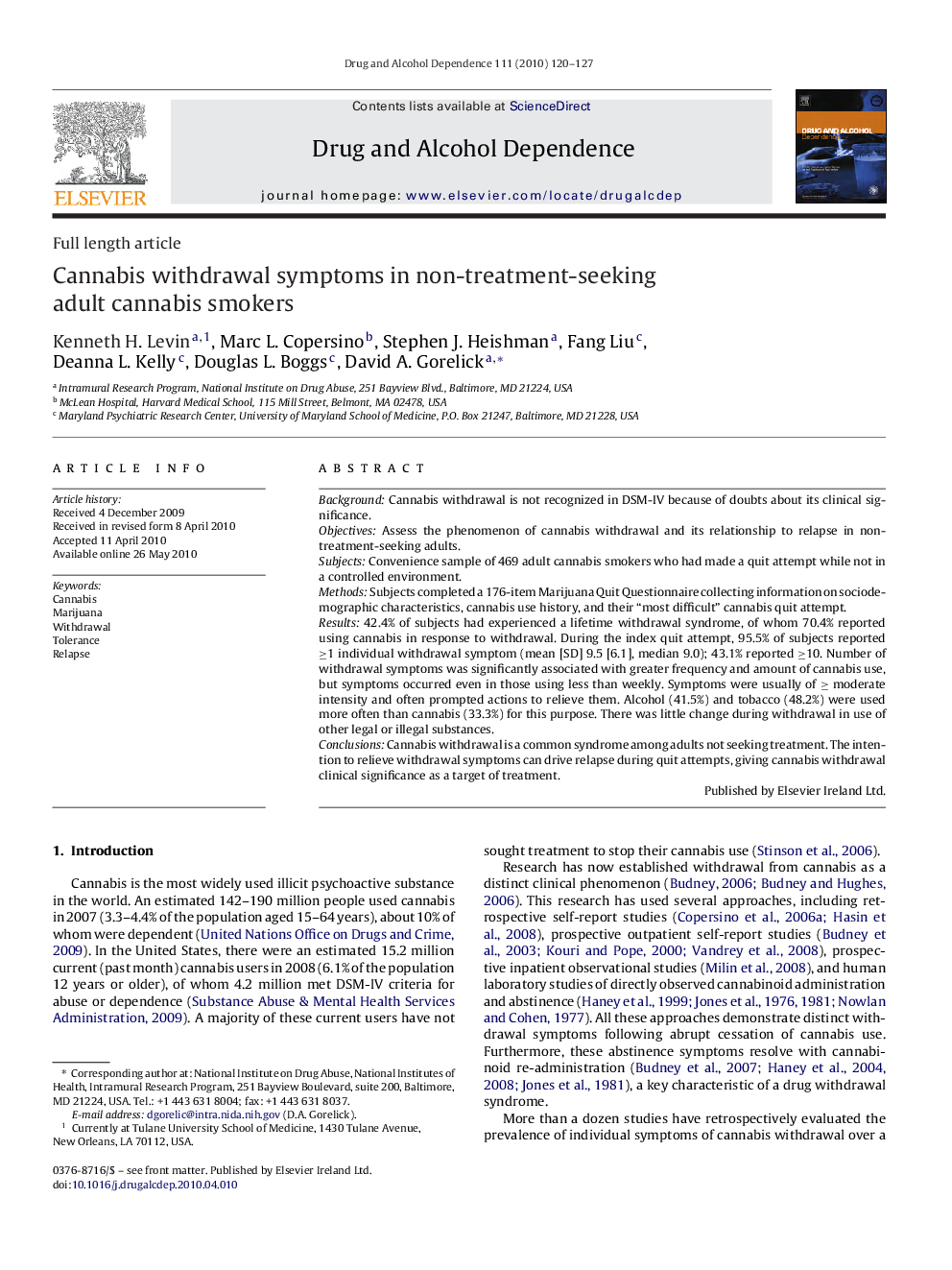| Article ID | Journal | Published Year | Pages | File Type |
|---|---|---|---|---|
| 1070422 | Drug and Alcohol Dependence | 2010 | 8 Pages |
BackgroundCannabis withdrawal is not recognized in DSM-IV because of doubts about its clinical significance.ObjectivesAssess the phenomenon of cannabis withdrawal and its relationship to relapse in non-treatment-seeking adults.SubjectsConvenience sample of 469 adult cannabis smokers who had made a quit attempt while not in a controlled environment.MethodsSubjects completed a 176-item Marijuana Quit Questionnaire collecting information on sociodemographic characteristics, cannabis use history, and their “most difficult” cannabis quit attempt.Results42.4% of subjects had experienced a lifetime withdrawal syndrome, of whom 70.4% reported using cannabis in response to withdrawal. During the index quit attempt, 95.5% of subjects reported ≥1 individual withdrawal symptom (mean [SD] 9.5 [6.1], median 9.0); 43.1% reported ≥10. Number of withdrawal symptoms was significantly associated with greater frequency and amount of cannabis use, but symptoms occurred even in those using less than weekly. Symptoms were usually of ≥ moderate intensity and often prompted actions to relieve them. Alcohol (41.5%) and tobacco (48.2%) were used more often than cannabis (33.3%) for this purpose. There was little change during withdrawal in use of other legal or illegal substances.ConclusionsCannabis withdrawal is a common syndrome among adults not seeking treatment. The intention to relieve withdrawal symptoms can drive relapse during quit attempts, giving cannabis withdrawal clinical significance as a target of treatment.
